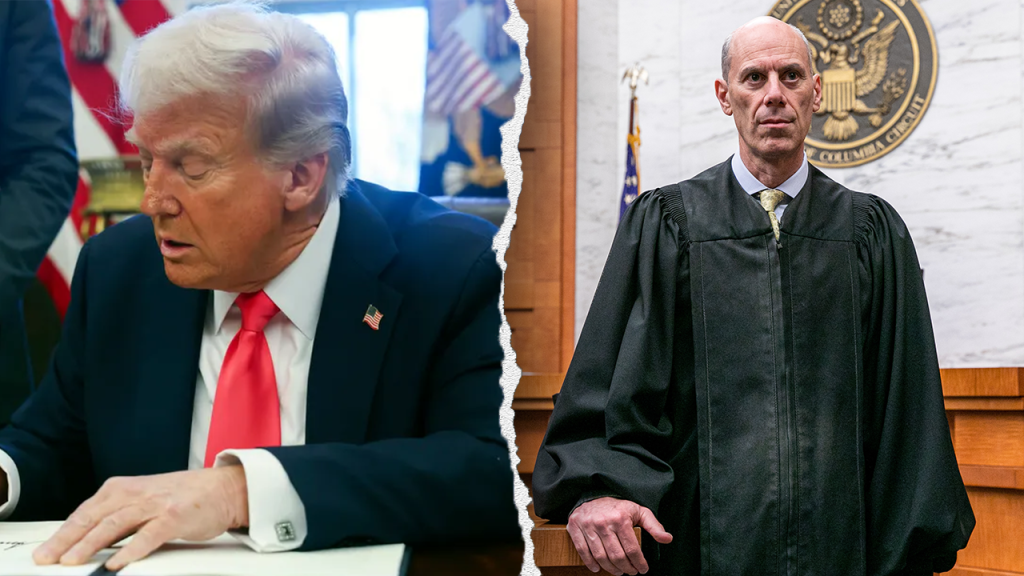U.S. District Judge James Boasberg has recently ordered all parties involved in a leaked Signal chat related to the Trump administration to preserve messages that were exchanged during the incident. This development arises from a lawsuit filed by American Oversight, a government transparency group, which contests whether senior officials breached federal recordkeeping laws by utilizing the messaging app for sensitive discussions about a military strike on Houthi targets in Yemen. The leaked chat, which unintentionally included journalist Jeffrey Goldberg, has brought to light significant concerns regarding governmental communication practices.
| Article Subheadings |
|---|
| 1) Court Orders Preservation of Messages |
| 2) Legal Ramifications of the Incident |
| 3) Controversies Surrounding Judge Boasberg |
| 4) National Security Implications |
| 5) Future Directions in the Case |
Court Orders Preservation of Messages
In a decisive move on Thursday, Judge Boasberg mandated that all communications exchanged via Signal between March 11 and March 15 be preserved, as these messages directly relate to discussions involving a military strike on Houthi militants in Yemen. This order aims to maintain a clear record for evaluation by the court amid ongoing legal discussions over the legality and compliance of government officials with recordkeeping statutes. The timeline provided by the judge encompasses critical days during which sensitive information was allegedly communicated, raising questions about the appropriateness of using a messaging platform like Signal for such discussions. The order is seen as an essential step in ensuring that necessary documentation is retained for judicial review.
Legal Ramifications of the Incident
The lawsuit initiated by American Oversight claims that using Signal—a platform often lauded for its encryption and privacy features—compromises the transparency required by federal regulations designed to preserve official records. According to the group’s representatives, senior officials’ private communications may contravene the Federal Records Act, which mandates that records of government business be preserved. This allegation highlights broader concerns regarding governmental accountability and the preservation of democratic principles through recordkeeping practices. The legal scrutiny surrounding this case encapsulates the intersection of privacy, accountability, and the responsibilities of public officials.
Controversies Surrounding Judge Boasberg
Judge Boasberg has faced criticism from various quarters, particularly from the Trump administration. Following his issuance of a restraining order that temporarily halted the president’s utilization of the Alien Enemies Act to deport Venezuelan nationals, tensions between the judge and the administration intensified. During recent hearings, Boasberg clarified the random assignment process that placed him in charge of this case, directly addressing allegations from President Trump suggesting that he was deliberately selected to manage cases against him. This response illustrates Boasberg’s commitment to judicial process integrity while facing pushback from the administration about his rulings.
National Security Implications
The Biden administration’s invocation of the state secrets privilege in ongoing court battles presents another layer of complexity in this situation. This privilege allows the government to withhold certain information from disclosure in the name of national security. The potential use of this privilege raises pressing questions about transparency, government oversight, and the defense of civil liberties. Critics argue that the invocation of state secrets could shield the administration from accountability regarding its actions, particularly in light of sensitive operations like the discussed military strike on the Houthis. The interplay between national security and legal accountability will continue to shape discussions and legal debates surrounding this incident.
Future Directions in the Case
As legal proceedings unfold, it remains unclear how the court will ultimately rule regarding the admissibility of the Signal messages and what impact these communications might have on broader considerations of accountability and governance. Additionally, the Trump administration’s commitment to appealing any adverse decisions to the Supreme Court further complicates the landscape. This ongoing battle highlights the challenges of balancing national security interests with the public’s right to know and the critical need to hold officials accountable for their actions.
| No. | Key Points |
|---|---|
| 1 | Judge Boasberg ordered the preservation of Signal messages from the Trump administration. |
| 2 | American Oversight’s lawsuit questions the legality of using Signal for sensitive discussions. |
| 3 | Tensions have risen between the Trump administration and Judge Boasberg amidst ongoing legal battles. |
| 4 | The invocation of state secrets privilege complicates transparency in this case. |
| 5 | The Trump administration plans to appeal decisions made in this ongoing legal dispute. |
Summary
The ongoing legal inquiries involving Judge Boasberg and the Trump administration raise profound implications for governmental transparency, recordkeeping, and accountability. As the court navigates these complex issues, the repercussions of this case will reverberate through future judicial proceedings and public perceptions of government integrity. The preservation of Signal messages is just the beginning of a legal journey that will illuminate the challenges and responsibilities of public officials in safeguarding both national security and the public’s right to information.
Frequently Asked Questions
Question: What prompted the court to order the preservation of Signal messages?
The preservation order was prompted by a lawsuit from American Oversight, which alleges that senior officials used Signal inappropriately for discussions related to military actions, potentially violating federal recordkeeping laws.
Question: What legal issues are at stake with the Signal chat communications?
The primary legal issue involves whether the use of Signal for official government discussions breaches the Federal Records Act, which requires that government communications be documented and preserved.
Question: How has the Trump administration responded to Judge Boasberg’s rulings?
The Trump administration has expressed dissatisfaction with Judge Boasberg’s rulings, alleging bias and seeking to appeal several decisions made in the ongoing cases.


